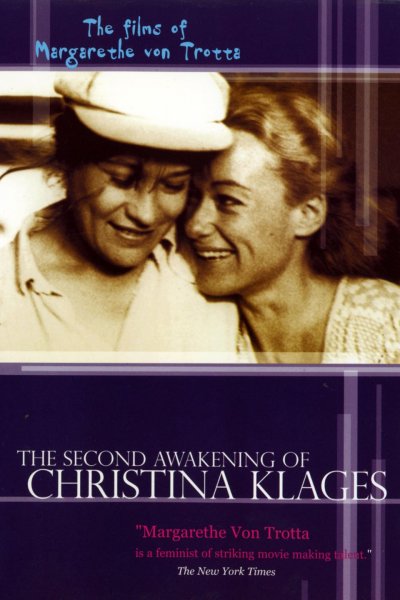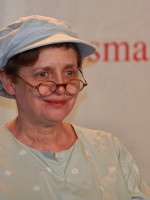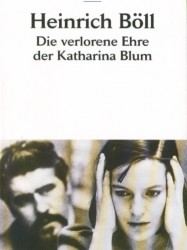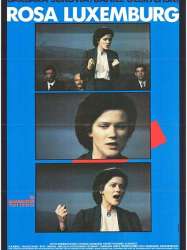The Second Awakening of Christa Klages is a Allemand film of genre Drama directed by Margarethe von Trotta with Tina Engel
The Second Awakening of Christa Klages (1978)
Das zweite Erwachen der Christa Klages

If you like this film, let us know!
- Infos
- Casting
- Technical infos
- Photos
- Videos
- Film quotes
- Characters
- Music
- Awards
The Second Awakening of Christa Klages (German: Das zweite Erwachen der Christa Klages) is a 1978 West German drama film directed by Margarethe von Trotta, her debut solo film.
Synopsis
Worried about the prospects of her children's day care center and running out of money, Christa Klages, a young mother, robs a bank with the help of her lover Werner Wiedemann and another friend. When Werner is killed during the heist and when it becomes clear that the police are after her, Christa flees to Portugal to seek help from another friend, Ingrid Häkele, a situation that threatens both women's safety.Actors

Tina Engel
(Christa Klages)

Katharina Thalbach
(Lena Seidlhofer)

Marius Müller-Westernhagen
(Werner Wiedemann)

Josef Bierbichler
(Homeowner (uncredited))
Comments
Leave comment :
Suggestions of similar film to The Second Awakening of Christa Klages
There are 48 films with the same actors, 13 films with the same director, 61675 with the same cinematographic genres, to have finally 70 suggestions of similar films.If you liked The Second Awakening of Christa Klages, you will probably like those similar films :

The Promise (1995)
, 1h55Directed by Margarethe von Trotta
Genres Drama, Comedy-drama, Romance
Actors Corinna Harfouch, Eva Mattes, Meret Becker, Tina Engel, Hark Bohm, Monika Hansen
Rating66%





À Berlin, en 1961. Konrad et Sophie, deux jeunes étudiants amoureux vivant à Berlin-Est tentent de passer à l’Ouest par les égouts, peu après la construction du mur. Ils sont séparés lors de leur fuite, seule Sophie parvenant à passer à l'Ouest. Konrad est enrôlé dans l’armée puis suit des études scientifiques. Il souffre beaucoup de l'omniprésence de la Stasi. Les deux amoureux se retrouvent à Prague en 1968, lors du Printemps de Prague. Ils décident de vivre ensemble dans la capitale de la Tchécoslovaquie mais sont à nouveau séparés par l'invasion soviétique. Sophie attend un enfant de Konrad. Cet enfant leur permet de se rencontrer de loin en loin. Ils se marient tous les deux de leur côté, abandonnant l'espoir de vivre ensemble. Vingt-sept ans après leur séparation, Konrad et Sophie se retrouvent au milieu de Berlinois en liesse. Nous sommes le 9 novembre 1989.

Hannah Arendt (2012)
, 1h53Directed by Margarethe von Trotta
Origin German
Genres Drama, Biography
Themes Films about writers, Philosophie, Films about religion, Political films, Films about Jews and Judaism
Actors Barbara Sukowa, Janet McTeer, Nicholas Woodeson, Julia Jentsch, Axel Milberg, Megan Gay
Rating70%





As the film opens Eichmann has been captured in South America. It is revealed that he escaped there via the "rat line" and with forged papers. Arendt, now a professor in New York, volunteers to write about the trial for The New Yorker and is given the assignment. Observing the trial, she is impressed by how ordinary and mediocre Eichmann appears. She had expected someone scary, a monster, and he does not seem to be that. In a cafe conversation in which the Faust story is raised it is mentioned that Eichmann is not in any way a Mephisto (the devil). Returning to New York, Arendt has massive piles of transcripts to go through. Her husband has a brain aneurysm, almost dying, and causing her further delay. She continues to struggle with how Eichmann rationalized his behavior through platitudes about bureaucratic loyalty, and that he was just doing his job. When her material is finally published, it immediately creates enormous controversy, resulting in angry phone calls and a falling out from her old friend, Hans Jonas.
 , 1h46
, 1h46Directed by Margarethe von Trotta, Volker Schlöndorff
Origin German
Genres Drama, Comedy, Crime
Themes Films about journalists, Political films
Actors Angela Winkler, Mario Adorf, Dieter Laser, Jürgen Prochnow, Heinz Bennent, Hannelore Hoger
Rating72%





The title character is an innocent housekeeper whose life is ruined by an invasive tabloid reporter and a police investigation when the man with whom she has just fallen in love turns out to be a radical bank robber. The film, unlike the novel, ends with a scene at Tötges' funeral, with his publisher delivering a hypocritical condemnation of the murder as an infringement on the freedom of the press.

Love and Fear (1988)
, 1h52Directed by Margarethe von Trotta
Origin France
Genres Drama, Romance
Themes Films about families, Théâtre, Films based on plays
Actors Fanny Ardant, Greta Scacchi, Valeria Golino, Peter Simonischek, Sergio Castellitto, Agnès Soral
Rating67%





 , 1h35
, 1h35Directed by Margarethe von Trotta
Genres Drama
Themes Films about families
Actors Heinz Bennent
Rating71%





Les sœurs Maria et Anna vivent ensemble. Maria, une secrétaire des plus compétentes, encourage Anna à terminer ses études et à commencer une carrière. Anna tergiverse, menace de quitter l'université, prend des pilules et tient un journal. Lorsque la relation de Maria avec le fils de son patron Maurice commence à mener vers l'amour, Anna prend une mesure égoïste et drastique qui plonge Maria dans la solitude.

Sheer Madness (1983)
, 1h45Directed by Margarethe von Trotta
Origin German
Genres Drama
Themes Buddy films
Actors Hanna Schygulla, Angela Winkler, Vladimir Yordanoff, Irene Clarin, Axel Milberg, Margarethe von Trotta
Rating65%






Rosa Luxemburg (1986)
, 2h3Directed by Margarethe von Trotta
Origin German
Genres Drama, Biography, Historical
Themes Politique, Political films
Actors Barbara Sukowa, Daniel Olbrychski, Otto Sander, Adelheid Arndt, Jürgen Holtz, Doris Schade
Rating68%





Polish socialist and Marxist Rosa Luxemburg dreams about revolution during the era of German Wilhelminism. While Luxemburg campaigns relentlessly for her beliefs, getting repeatedly imprisoned in Germany as well as in Poland, she spars with lovers and comrades until the ambitious leader is assassinated by Freikorps for her leadership in the Spartacist uprising after World War I in 1919.

Marianne and Juliane (1981)
, 1h46Directed by Margarethe von Trotta
Origin German
Genres Drama, Historical
Themes Films about families, Films about terrorism
Actors Barbara Sukowa, Rüdiger Vogler, Julia Biedermann, Doris Schade, Vérénice Rudolph
Rating72%





Two sisters, both dedicated to women's civil rights, fight for the same cause, although in very different ways. The story is interspersed with flashbacks into the sisters' childhood.

Rosenstrasse (2003)
, 2h10Directed by Margarethe von Trotta
Origin German
Genres Drama, War, Historical
Themes Films about religion, Political films, Films about Jews and Judaism
Actors Maria Schrader, Katja Riemann, Martin Wuttke, Doris Schade, Jürgen Vogel, Fedja van Huêt
Rating66%





In the present day, a widow mourns the death of her husband. She covers up the TV set and all the mirrors in the house.

The African Woman (1990)
Directed by Margarethe von Trotta
Genres Drama
Actors Barbara Sukowa, Stefania Sandrelli, Sami Frey, Jacques Sernas, Pierre Deny, Sotigui Kouyate
Rating67%





 Connection
Connection